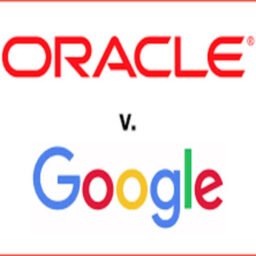ROLE OF INTELLECTUAL PROPERTY RIGHTS IN BOLLYWOOD
INTRODUCTION
Our existence is not enough for living a life, a life is made up with certain things that might be neglected sometimes but it is as important as the other main things in life and entertainment is one of them. Film Industries are also playing an important role and it becomes a part of our lives, not from now but from years ago. But have you ever thought that the music, drama, thrill, recordings, movies, etc are also the property of someone or someone has right over it and all these are protected by laws?
It is generally unknown to the layman, but all these are covers under the Artistic works, which are protected by the Copyright, which is governed under the Copyright Act, 1957[1].
Let’s understand this in deep and make each and every aspect clear –
WHAT ARE THE INTELLECTUAL PROPERTIES
Intellectual Properties are the tangible properties which develop by the human intellect or creativity. It may be some artistic and literal work, or any property for the industrial or commercial use.
When any product lost, it may be consider as theft and we can go to the police to register the complaint against it but what about the intellectual properties and how they can be protected?
So, Intellectual property may be of two types, they are
- Artistic, or literal work,
- Industrial work.
Where, artistic and literal works are protected by copyright, and Industrial work may be protected by Patent, trademark, trade secret, geographical indication, industrial design.
Artistic works, which encompasses the rights or ownership over any art, book, painting, music, movies, etc, are protected under the Copyright which is governed under the Copyright Act, 1957.
While, Industrial works, which holds medicines, agricultural machinery, etc, are protected under patent, trademark, and so on.
COPYRIGHT LAW AND BOLLYWOOD
Copyright is a right, granted for originality and creativity. It is a negative right and it prevents others to reproduce or copy the same things. Copyright law provides that the owner, creator or the right holder have the rights that they can use or reuse that property. They also have the right to sell or distribute it in any forms.
In bollywood, when the producers make any film or compose any music, they need to float it in the market to recognize it. So for this, they sell it or distribute it in various territorial divisions to the cinemas or in the form of CD’s or DVD’s. But the danger on its privacy is come on the stake. There are numbers of sites which works as the free movies websites and provides that content in free and people prefer that instead of paying and then watching, and this includes the violation of copyright.
Copyright always granted for the creativity, novelty, intellect, etc. The creators or right holders have all the powers to sell it, or to authorize other person wholly or partially on his behalf to sell it, or distribute it in several forms. The right holder can take legal actions against the person who copy or remake it in any form without permission of the owner. Copyrighted content is not available to any person who does not have the right to use it or copy it or reproduce it without the permission of owner or creator and if someone does so without the creator’s consent, it is known as the infringement of rights of creator. Section 51[2] of the copyright act defines the ambit of infringement in copyright.
- WHEN IT IS NOT CONSIDER AS INFRINGMENT:
- When the permission is granted by the right holder or maker,
- When it is available on the common public domain for some free use with permission,
- If permission granted for certain use or on the certain conditions, or
- When you have specified the name or gave credit to the owner, but the use here is partially not wholly.
- INFRINGEMENT INCLUDES:
Without permission-
- Use or Copy the protected content,
- Recreation of it,
- Distribution of it, or
- Performance of any work, without permission.
- REMEDIES:
- Injunctions, or
COPYRIGHT IN CINEMATOGRAPHICAL AND FILMISTIC WORKS
The term ‘Cinematography Films’ is defined in the Section 2(f) of the Copyright Act, as any work which includes the visual and sound recording and is like the cinematography or video films[3].
From script to broadcasting, each and every thing of any film may be protected by copyright. In the making stage of any film, there is a need to keep everything private so that no one can steal the concept and content which is going to be a part of that particular movie in future. For this, the producers use the weapon of copyright that protects their concept and content. In a film, producer of the film owns whole copyright rights and not the camera man or the music directors. Scripting, screwing, casting, venues, recordings, etc all are protected under copyright. After realizing, the broadcasting and then the reproduction with some slight differences are also protected under the rights of producer or any authoritative person.
Choreography or any particular dance steps, known as hook steps can also get protection as a part of the dramatic work, for no reuse without creator’s consent. Dramatic work is defined in the Section 2(h) of the Copyright Act as any performance for people but it is different from cinematography and it includes choreography, recitation[4].
COPIRIGHT IN MUSIC
Musical work is defined under Section 2(p) as any music which includes graphical notation but does not include any actions or words with it[5]. A song, music or its lyrics are also the protected works under the copyright act. The one who creates any music or song is known as the composer. A composer of any musical work have all the right over his creation, he may sell it or distribute it in any forms or recreate it. In India we have seen that there are numerous songs and music which are the recreation of the old ones. But it constitutes a clear violation of copyright rights held with the actual composer of it.
OH MY GOD!! ONE MORE REMIX
In Bollywood, remix are very common composition. Remix are also the recreation of old ones, so does they are also the violation of copyright act?
Remix are made up by the addition or subtraction in the lyrics or music or by some other changes and by that changes, it creates a novel work or creation, but it is the violation against the person who had actually created that idea of that content, ago. So if someone wants to make the remix of any song that already exists, then –
- He has to give the prior notice to the original composer.
- He has to pay some royalties to the original composer.
Without giving prior notice and royalties to the original composer, that remix will be held as the violation of copyright act. Also it is a right of the original composer that he can know the related things.
- Loopholes: It looks good in the first view, but it is different from the reality. In reality, neither the term remix nor any fixed amount of royalty defined anywhere in the Copyright Act, 1957, due to which, the original composer gets meager amount of royalty.
CASE LAW
R.G. Anand vs. Deluxe Films and ors, 1978: In India, this case was the first landmark case of copyright in bollywood that held that the idea is nothing on which the copyright can be obtained. In this case the Supreme Court had propounded the test known as the Lay Observer Test, which says that if any lay man can detect the similarities or if he can object that it is the copied work then the copyright can be inflicted to the one who has recreated or copied the work[6]. This case is a landmark and eminent case not only in the copyright law but also in the bollywood.
CONCLUSION
In the film industry, it is very usual that the stories or ideas get copied from the different sources and it needs to prevent from copying. Music, drama, and even any particular hook step of any song are protected under Copyright. Despite it is a source of entertainment but it also contains some restriction and we need to take precautions towards it and if I gather it, it is better to create own work instead of copying.
‘DON’T COPY ANYONE, CREATE YOUR OWN’
Author(s) Name: Pooja Katre (Renaissance Law College, D.A.V.V. University, Indore)
References:
[1] The Copyright Act, 1957 Act No. 14 of 1957, https://copyright.gov.in/documents/copyrightrules1957.pdf
[2] Section 51 of the Copyright Act, 1957 Act no. 14 of 1957, https://indiankanoon.org/doc/1038145/
[3] Section 2(f) of the Copyright Act, 1957 Act no. 14 of 1957, https://indiankanoon.org/doc/797096/
[4] Section 2(h) of the Copyright Act, 1957 Act no. 14 of 1957, https://indiankanoon.org/doc/31552/
[5] Section 2(p) of the Copyright Act, 1957 Act no 14 of 1957, https://indiankanoon.org/doc/797096/
[6] R.G. Anand vs. Deluxe Films and others, 1978 AIR 1613 https://indiankanoon.org/doc/1734007/









